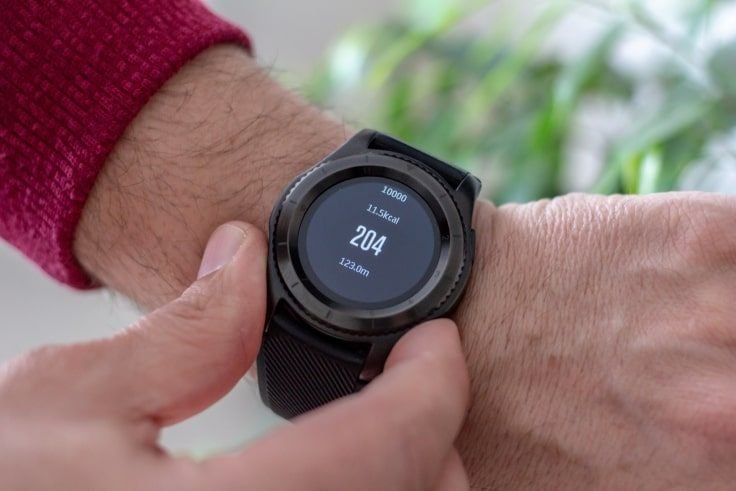Signs Of Anxiety: How Do I Know If I Suffer From Anxiety?

This list of the most common signs of anxiety will help you figure out whether you have a disorder or you are just tensed unnecessarily.
Experiencing anxiety is part of most of our lives. There are rise and fall in every human being’s life. Anxiety may grow for some time for various reasons, and naturally, it fades away.
Stressful life events cause stress, and it is not something unusual. Just imagine the situation of your life – you have no job but are to maintain your family. In this case, anxiety arises.
But what if the symptoms and signs of anxiety are not controllable and are more than natural? If it continues over a long period, it should be considered an anxiety disorder.
And, you may need to consult with your doctor to overcome this problem to lead a happier life.
However, you should not be too stressed if you have experienced an anxiety disorder. It can be debilitating with proper medical assistance.
So, without worrying, you need to talk to your doctor about the health condition you are suffering. He must advise you on the best ways to overcome anxiety after examining.
First thing comes first. At first, you have to make sure that you are suffering from an anxiety disorder.
Signs Of Anxiety Disorder
The following symptoms may help you figure out whether you have an anxiety disorder or you are tensed unnecessarily. Here are the most common signs of anxiety:
1. Excessive Worrying
If you observe over a long period that you are worrying too much, even over a tiny matter, you can consider it a common symptom of an anxiety disorder. Doctors treat it as one of the most common signs of anxiety.
The worrying also hinders your day-to-day work and keeps you away from accomplishing your daily tasks with concentration.
As a result, you become more anxious at the end of the day because you are not done with your regular work effectively. Your productivity decreases over time.
2. Restlessness
Restlessness is one of the likely symptoms of anxiety you may suffer if you have an anxiety disorder. It is not the only symptom by which you can judge your anxiety problem. But, in medical science, doctors consider it a red flag to diagnose a patient.
The symptom is most acute in teens and children.
3. Difficulty Concentrating
There are many other things associated with experiencing difficulty in concentrating. If you do not have a restful sleep throughout the night, you may not focus on anything properly for the following day.
Many studies show that people with anxiety problems have difficulty concentrating too.
Though there is no hard evidence that this is the symptom of an anxiety disorder, sometimes, it relates to it.

4. Agitation During The Entire Day
Think of a man who is well. When he becomes very anxious, sometimes or most times, he feels his nervous system overdrive. It triggers to explore the body something like racing pulse, shaky hands, dry mouth, and sweaty palms.
In this case, our brain considers that we are in danger, and thus, it prepares our body to face the potential threat. It also increases our heart rate and blood pressure.
Studies show that people who do not have an anxiety disorder can reduce their anxiety rapidly in comparison to those who have an anxiety disorder.
5. Fatigue Can Be Another Symptom Of Anxiety
A man having no health issues can work harder and for an extended period without being fatigued.
On the other hand, a man with an anxiety disorder can quickly become tired just after some time. That’s why medical science considers fatigue a potential symptom of an anxiety disorder.
Fatigue can also be an indication of sadness or other health issues. So, only your doctor can tell you whether it is a symptom of your anxiety or not.
6. Muscles Are Tensed
If you have tense muscles one or two days per week, it may not be a sign of an anxiety disorder. But experiencing tight muscles most days of the week can be a potential symptom of this health condition.
People having an anxiety disorder can also become released by muscle relaxation therapy as well.
But there is no doubt that muscle tension is related to anxiety. Still, it is not a specific symptom that can be caused by stress.

7. Sleep Deprivation
Sleep problems are likely causes of anxiety disorders. Those who do not have a restful sleep and wake up suddenly from sleep at night are most vulnerable to an anxiety problem.
Also, if a child develops insomnia, it affects his later life resulting in anxiety problems.
Studies show that insomnia and anxiety are strictly related to each other. So, by improving your deep sleep at night without any interruption, you can fight against an anxiety disorder.
8. Panic May Lead To Anxiety
This condition can be debilitating. And, it is another likely symptom of anxiety disorder.
Due to panic attacks, you will become fearful, and overwhelmed. This results in rapid heartbeat, shaking, sweating, and nausea as well.
Sometimes, you can even lose control over yourself and fall to the ground.
9. The Urge To Stay Away From Social Situations
If you have an anxiety disorder, you may experience avoiding some social cases. You may become fearful about the upcoming social events around you.
There may develop thinking inside you that others may scrutinize you. Even you may have the feeling of being humiliated by others in front of people.
You cannot consider that one of the above conditions is the only symptom of an anxiety disorder. There are many things related to this health issue. But they are the most common symptoms a sufferer of anxiety may experience.
So, be wise and consult with your physician about your health issue. Your doctor, after diagnosing correctly, can tell you the truth.